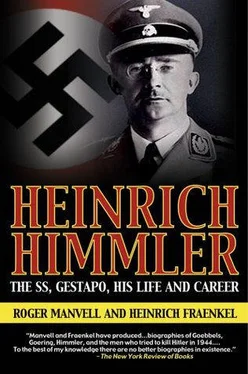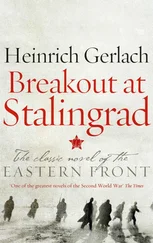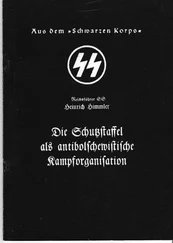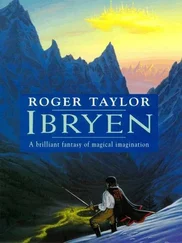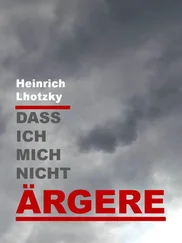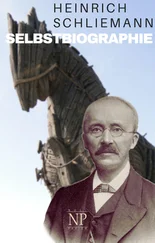MANVELL, ROGER and FRAENKEL, HEINRICH: Doctor Goebbels. (London: Heinemann, 1960.)
— Hermann Göring. (London: Heinemann, 1962.)
— The July Plot. (London: The Bodley Head, 1964.)
MASUR, NORBERT: En Jud talar med Himmler. (Stockholm: Hoffmann und Campe, 1946.)
MÖLLER, KURT DETLEV: Das Letzte Kapitel. (Hamburg, Hoffmann und Campe, 1947.)
OVEN, WILFRED VON: Mit Goebbels bis zum Ende. (Buenos Aires: Dürer Verlag, 1949-50.)
PAPEN, FRANZ VON: Memoirs. (London: André Deutsch, 1952.)
The Ribbentrop Memoirs. (London: Weidenfeld and Nicolson, 1954.)
The Rosenberg Memoirs. (New York: Ziff Davis, 1949.)
RUSSELL OF LIVERPOOL, LORD: The Trial of Adolf Eichmann. (London: Heinemann, 1962.)
The Schellenberg Memoirs. (London: André Deutsch, 1956.)
SCHMIDT, PAUL: Hitler’s Interpreter. (London: Heinemann, 1951.)
SEMMLER, RUDOLF: Goebbels, the Man Next to Hitler. (London: Westhouse, 1947.)
SHIRER, WILLIAM L.: Berlin Diary. (New York: Knopf, 1941.
— End of a Berlin Diary. (New York: Knopf, 1947.)
The Report of Jurgen Stroop: an account of the Warsaw Ghetto Rising. (Warsaw: Jewish Historical Institute, 1958.)
SKORZENY, OTTO: Geheimkommando Skorzeny. (Hamburg, 1950.)
TREVOR-ROPER, H. R.: The Last Days of Hitler. (London: Macmillan, 1947.)
WESTPHAL, SIEGFRIED: The German Army in the West. (London: Cassell, 1951.)
WIGHTON, CHARLES: Heydrich. (London: Odhams, 1962.)
WULF, JOSEF: Heinrich Himmler . (Berlin: Arani Verlag, 1960.)
Abwehr
Action Groups ( Einsatzgruppen )
Ahnenerbe (Ancestral Heritage)
Alexander, Gen. Sir Harold
d’Alquen, Gunther
Antonescu, Marshal Ion
Apollo Club (Munich)
Attolico, Bernardo
Austin, Sergeant-Major Edwin
Baarova, Lida
Bach-Zelewski, Erich von dem
Baretski, Stefan
Becher, Kurt
Beck, Gen. Ludwig
Berger, Gottlieb
Best, Karl Werner
Bethge, Pastor Eberhardt
Bernadotte, Count Folke
Blomberg, Gen. Werner von
Blum Léon
Bocchini, Police Chief
Bodenschatz, Gen. Karl von
Bohle, Ernst
Bonhoeffer, Pastor Dietrich
Bormann, Frau Herda
Bormann, Martin
Bose, Herbert von
Bouhler, Philip
Brack, Dr Viktor
Brand, Yoel
Brandt, Dr Karl
Brandt, Dr Rudolf (Himmler’s principal secretary).
Brauchitsch, Field-Marshal Walter von
Braun, Eva
Braun, Prof. von
Brunswick, Archbishop of
Burckhardt, Karl
Busch, Field-Marshal Ernst
Butler, Ewan
Canaris, Adm. Wilhelm
Carinhall (Göring’s residence)
Churchill, Odette
Ciano, Count Galeazzo
Concentration Camps; rival foundations (1933); Göring’s conception of; Himmler’s pre-war organization of; Himmler on prisoners in; Himmler’s attitude to; Himmler’s visits to; medical experiments in; wartime developments in, first phase; extermination of defective persons in; organization of slave labour in; instructions for executions in; looting from prisoners in; evacuation and liberation from; individual camps: Auschwitz; Bergen-Belsen; Birkenau; Buchenwald; Dachau; Flossenbürg; Gross-Rosen; Linz; Lublin; Natzweiler, Mauthausen; Oranienburg; Ravensbrück; Sachsenhausen; Treblinka
Concerzowo, Lydia and Bertha
Crinis, Prof. de
Daluege, Kurt
Darré, Walter
Das Schwarze Korps
Death’s Head Unit (later Division)
Degrelle, Léon
Diels, Rudolph
Dietrich, Sepp
Doctors’ Trial (Nuremberg 1946-7)
Doenitz, Grand Admiral Karl
Dollfuss, Engelbert
Dornberger, Maj.-Gen. Walter
Dulles, Allen
Eberstein, Freiherr von
Eden, Sir Anthony
Eichmann, Adolf
Eicke, Theodor
Einsatzgruppen (see Action Groups)
Eisenhower, Gen. Dwight D.
Epp, Ritter von
Ernst, Karl
Falkenhausen, Gen. von
Farben-Industrie
Fegelein, Hermann
Fellgiebel, Gen. Erich
‘Final Solution’, the, Chap. V passim
Fischer, Dr Fritz
Franco, Gen. Francisco
Frank, Hans
Frankfurt Trial 1964-5
Frederick the Great
Freisler, Roland
Frick, Wilhelm
Fritsch, Gen. Baron Werner von
Fromm, Gen. Friedrich
Gebhardt, Karl
Gestapo (principal refs.): origin; under Goring; taken over by Himmler; later power of; and the Fritsch case; under Heydrich
Giesler, Paul
Gisevius, Hans Bernd
Globocnik, Odilo
Glücks, Richard
Goebbels, Joseph
Goerdeler, Carl
Goring, Hermann
Greim, Ritter von
Groeber, Archbishop
Grothmann, SS Col. Werner
Guderian, Gen. Heinz
Günther, Christian
Gürtner, Franz
Hacha, Emile
Hajji Iman, Mufti
Halifax, Lord
Hallgarten, Wolfgang
Hanke, Karl
Hassell, Ulrich von
Hauser, Paul
Haushofer, Albrecht
Hedwig (also known as Häschen, Himmler’s mistress)
Heiden, Erhard
Heiliger, Max
Herff, SS. Gen. von
Heinrich, Prince of Bavaria
Heinrich I (Henry the Fowler)
Heinrici, Gen. Gotthard
Held, Heinrich
Helge (Himmler’s illegitimate son)
Helldorf, Count Wolf von
Henderson, Sir Nevile
Hess, Rudolf
Hewitt, Abram Stevens
Heydrich, Frau Lina
Heydrich, Reinhard, SS. Gen.: character; first meeting with Himmler (1931); early relationship with Himmler; appointed Chief of S.D.; work for SS.; builds up S.D. files; establishes S.D. in Berlin; appointed Himmler’s Deputy (1934); and Roehm purge; appointed SS. Lieut.-Gen.; and Kaltenbrunner; and concentration camps; relations with Canaris and Abwehr; and the Tuchachewski affair; and the Blomberg-Fritsch cases; and the Anschluss; and Eichmann; and persecution of Jews; visits Mussolini; gradual independence from Himmler; contempt for Himmler’s obsessions; Gisevius on; Schellenberg on; Kersten on; Himmler on; uses brothel Salon Kitty to obtain information; possibility of Jewish blood; flies with Luftwaffe; and first conception of genocide; suspicions of Kersten; prepares for Russian campaign; receives extermination order from Goring; relation to Eichmann; appointed SS. General and Acting Reich Protector in Czechoslovakia; relations with Bormann; voices Himmler’s views in speech to Czechs; at Wannsee conference on ‘final solution’; assassinated (May, 1942); compiles medical evidence on Himmler; encourages Horia Sima at the expense of Antonescu
Himmler, Anna (mother)
Himmler, Ernst (brother)
Himmler, Gebhard (father)
Himmler, Gebhard (brother)
Himmler, Gerhard (foster-son)
Himmler, Gudrun (daughter)
Himmler, Heinrich: character, Chap. vi passim; contribution to Nazi regime; childhood and schooling; youth in Munich; diary; character in early youth; attitude to first world war; officer-cadet (1917); studies agriculture in Munich; character as student — social life, attitude to girls and sex, selfcriticism, parsimony, precision, early anti-semitism; initial relationship with Roehm; takes part in Munich putsch (Nov. 1923); initial contact with Hitler; joins Nazi Party (August 1923); joins Völkische movement; on Strassers’ staff; early contact with Goebbels; Goebbels on Himmler (1926); joins SS. (1925); appointed Deputy Reich Propaganda Chief and Deputy Commander, SS.; marries (1928); buys smallholding Waltrudering; daughter Gudrun born (1929); appointed Reichsführer SS. (1929)
Initial plans for SS. — the élite corps; institutes SS. marriage code; made member of Reichstag (1930), development of racial obsessions and anti-semitism; claims peasant ancestry; employs Heydrich as principal assistant; relation with Goring after January 1933, appointed President of Police in Munich (1933); founds Dachau as ‘model’ concentration camp; relations with Hoess; concept of camp discipline; developing powers of; assumes control of German police and Gestapo (1934—5).
Читать дальше
